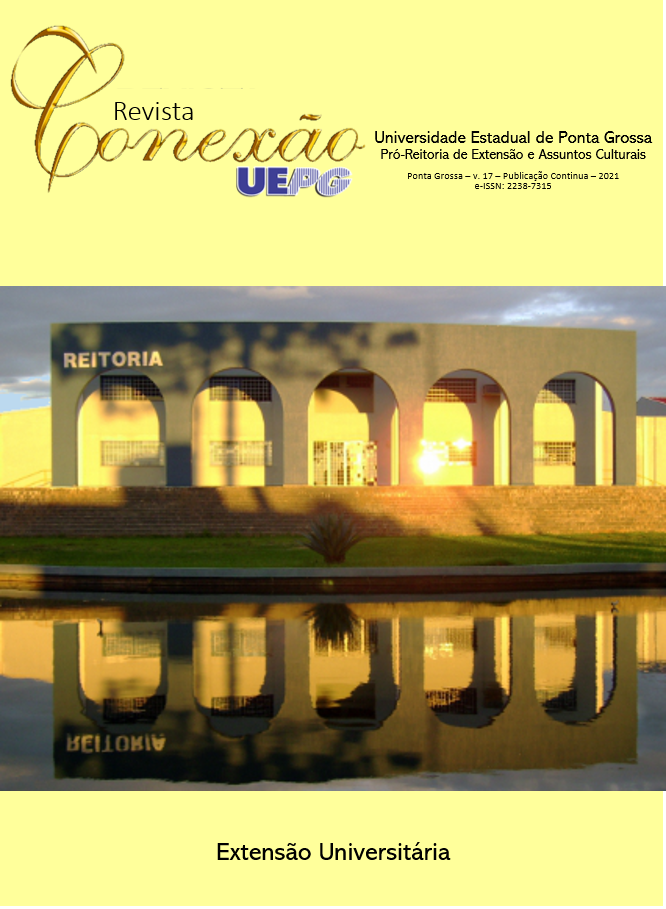EDUCAÇÃO POPULAR NA ATENÇÃO PRIMÁRIA À SAÚDE: SISTEMATIZAÇÃO DE EXPERIÊNCIAS COM GRUPOS COMUNITÁRIOS DE PROMOÇÃO DA SAÚDE
DOI:
https://doi.org/10.5212/Rev.Conexao.v.17.15270.003Resumo
O presente artigo objetiva caracterizar a Educação Popular como abordagem teórico-metodológica orientadora de ações de Promoção da Saúde na Atenção Primária à Saúde (APS). Em vista disso, teve como base as experiências de três grupos educativos comunitários desenvolvidos no contexto do Programa de Extensão Práticas Integrais de Promoção da Saúde e Nutrição na Atenção Básica. Para tanto, recorreu-se à proposta da sistematização de experiências. Assim, delineia-se o conjunto de iniciativas efetuadas no campo da APS, identificando aspectos teórico-metodológicos cuja essência reside em dimensões como: diálogo horizontalizado, fortalecimento da autonomia, respeito à cultura popular com valorização dos diferentes saberes e outras ações participativas. Em sequência, abordam-se as possibilidades e os limites dessas experiências. Com isso, evidencia-se a potencialidade da Educação Popular como prática social direcionada à promoção da saúde, particularmente na composição de estratégias participativas e interprofissionais, baseada em uma perspectiva ampliada de saúde que se orienta pelo pressuposto de construir compartilhadamente.
Downloads
Downloads
Publicado
Edição
Seção
Licença
a) Os autores mantêm os direitos autorais e concedem à revista o direito de primeira publicação, com o trabalho simultaneamente licenciado sob a Creative Commons Attribution License que permite o compartilhamento do trabalho com reconhecimento da sua autoria e publicação inicial nesta revista.
b) Ao submeter um artigo à Revista Conexão UEPG e tê-lo aprovado os autores concordam em ceder, sem remuneração, os seguintes direitos à Revista: os direitos de primeira publicação e a permissão para que a Revista redistribua esse artigo e seus metadados aos serviços de indexação e referência que seus editores julguem apropriados.
c) Os leitores são livres para transferir, imprimir e utilizar os artigos publicados na Revista, desde que haja sempre menção explícita ao(s) autor (es) e à Revista Conexão UEPG e que não haja qualquer alteração no trabalho original. Qualquer outro uso dos textos precisa ser aprovado pelo(s) autor (es) e pela Revista.

Este obra está licenciado com uma Licença Creative Commons Atribuição 4.0 Internacional.





